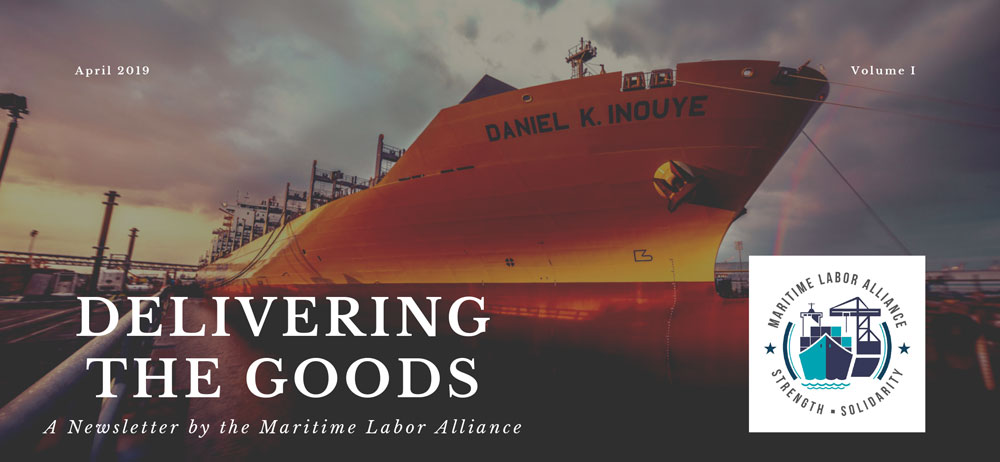MLA Statement on Automation in the Maritime Industry
As automation is being deployed in the transportation industry, proposals to fully automate port terminal operations are currently being considered while efforts to operate unmanned vessels are not far behind. The U.S. maritime industry employs more than approximately 260,000 Americans and provides more than $29 billion in annual wages. However, the maritime workforce will be faced with dramatic job cuts and loss of wages if the unchecked move to automation is fully realized. These efforts are continually being forced upon workers as management seeks to do more with less in an effort to eliminate one thing: American workers.
The expansion of full automation in our coastal harbors is being promoted with claims of reducing human error while improving the safety and efficiency of our ports. These claims are shortsighted and misleading.
The Maritime Labor Alliance stands in solidarity to oppose any effort to implement automated technologies in the workplace that will seek to increase profits at the expense of our jobs.”
In fact, a recent survey by McKinsey & Company found that fully automated ports were generally less productive than their conventional counterparts while the return on investments produced far less than original projections. Additionally, recent incidents involving cyber-attacks on our ports and shipping companies expose the vulnerability of technologies in the maritime industry, and the subsequent loss of productivity and cargo movement due to technical failures. For example, ransomware attacks on the Port of San Diego and A.P. Moller-Maersk have resulted in hundreds of millions of dollars in losses and major service disruptions. What will happen when there are no people available to override these threats or protect our databases in a fully automated workplace?
Our elected officials must also consider the long-term impact automation will have on jobs, working families, and quality of life.
If dockworkers and mariners are ultimately replaced by robotics and artificial intelligence, who will pay taxes to finance our local schools, roads, and hospitals? Where will displaced workers find employment when their skills are nontransferable elsewhere? And most importantly, who will vote for a candidate who did not speak up and fight for the thousands of workers’ jobs that will be decimated by a fully autonomous industry. These are the important questions policymakers must be prepared to answer as we are faced with one of the toughest issues that impact the future of our families and livelihoods.
The Maritime Labor Alliance stands in solidarity to oppose any effort to implement automated technologies in the workplace that will seek to increase profits at the expense of our jobs.
The Maritime Labor Alliance (MLA) is the leading labor organization representing seagoing and longshore workers in the U.S. maritime industry, dedicated to protecting industry standards, enhancing workplace safety and fortifying our industry to guarantee our critical contributions to our economy and national security in both peace and war.

